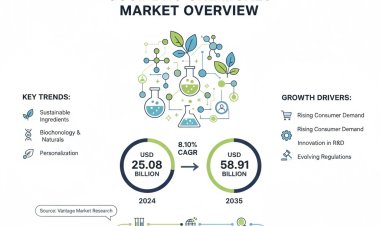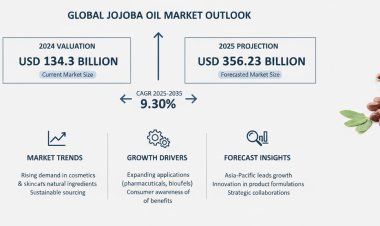Global Fuel Ethanol Market Size to Reach $120.1 Billion at a CAGR of 4.8% by 2030
Vantage Market Research expects the Fuel Ethanol Market to reach USD 120.1 Billion by 2030, exhibiting a growth rate (CAGR) of 4.8% during 2023-2030.

The Global Fuel Ethanol Market size reached USD 86.5 Billion in 2022. Vantage Market Research expects the market to reach USD 120.1 Billion by 2030, exhibiting a growth rate (CAGR) of 4.8% during 2023-2030.
Table of Content [TOC]
|
Introduction |
|
· Climate Change and Global Warming |
|
· Ethanol as a Renewable and Clean-Burning Fuel |
|
· The Growth of the Global Ethanol Market |
|
· Factors Driving Growth in the Fuel Ethanol Market |
|
· Environmental Benefits of Ethanol as a Fuel |
|
· Greenhouse Gas Emission Reduction |
|
· Air Quality Improvement |
|
· Renewable Nature |
|
Ethanol Blending Mandates |
|
· Government Regulations to Promote Ethanol Blending |
|
· Impacts of Ethanol Blending Mandates |
|
Technological Innovations and Emerging Trends |
|
· Advanced Biofuels |
|
· Sustainable Sourcing |
|
· Carbon Capture and Utilization (CCU) |
|
Conclusion |
|
· The Role of the Global Ethanol Market in Combating Climate Change |
|
· The Need to Support and Invest in the Ethanol Market |
|
· A Greener Future with the Global Ethanol Market |
Introduction
Climate change and global warming are huge threats to our planet. We must find sustainable solutions to combat these challenges. We must act now to ensure a healthy and habitable planet for future generations. One such solution lies in the worldwide Ethanol market, which has emerged as a crucial player in the fight against climate change. Ethanol, a renewable and clean-burning fuel, offers numerous advantages and has significant potential to reduce greenhouse gas emissions and promote sustainability. Ethanol is a biofuel produced by the fermentation of renewable biomass sources such as corn, sugarcane, wheat, and cellulosic materials. It is commonly used as a blending agent in gasoline, typically up to 10% Ethanol content (E10). Ethanol possesses a high-octane rating, making it an effective fuel additive to improve engine performance and reduce harmful emissions.
Request Sample Report of Fuel Ethanol Market @ https://www.vantagemarketresearch.com/fuel-ethanol-market-2247/request-sample
Top Companies in Global Fuel Ethanol Market
- Archer-Daniels-Midland Company (U.S.)
- BP PLC (UK)
- Cargill Incorporated (U.S.)
- INEOS Group Limited (UK)
- HPCL Biofuels Limited (India)
- LyondellBasell Industries Holdings B.V. (U.S.)
- Mitsubishi Chemical Corporation (Japan)
- SABIC (Saudi Arabia)
- Sasol Limited (South Africa)
The Growth of the Global Ethanol Market
The market for Ethanol as a fuel additive, commonly known as Fuel Ethanol, has witnessed significant growth in recent years. This growth is primarily driven by many factors, including increasing concerns over environmental pollution, government initiatives to promote biofuels, and the rising demand for energy-efficient and cleaner-burning fuels. One of the main drivers of the growth of the global Ethanol market in the Fuel Ethanol segment is the increasing concern over environmental pollution caused by traditional fossil fuels. Ethanol, derived from renewable sources like corn, sugarcane, and other biomass, is considered a greener alternative to conventional gasoline. It produces few harmful emissions, like carbon monoxide and particulate matter, contributing to air pollution and global warming. As a result, various countries have implemented policies to encourage the use of Ethanol as a sustainable and environmentally friendly fuel.
Additionally, the rising demand for energy-efficient and cleaner-burning fuels has further propelled the growth of the Fuel Ethanol market. Ethanol blends, such as E10 (a blend of 10% Ethanol and 90% gasoline) and E85 (a blend of 85% Ethanol and 15% gasoline), have gained popularity as they offer improved fuel efficiency and lower emissions than traditional gasoline. These blends also help reduce dependence on fossil fuels, enhance energy security, and promote the development of a more sustainable and diversified energy mix. Moreover, advancements in Ethanol production technologies and the increasing availability of feedstocks have contributed to the growth of the global Ethanol market. Technological advances have made Ethanol production more efficient and cost-effective, enabling higher production volumes and reducing the overall cost of production. Furthermore, abundant feedstocks, such as corn and sugarcane, in countries like the United States, Brazil, and India, have facilitated the expansion of Ethanol production capacities.
Environmental Benefits of Ethanol as a Fuel
Greenhouse Gas Emission Reduction: Ethanol combustion produces fewer greenhouse gas emissions than fossil fuels. It has a lower carbon content and can reduce CO2 emissions by up to 40%, significantly reducing the transportation sector's carbon footprint.
Air Quality Improvement: Ethanol has excellent benefits from its cleaner combustion process. It reduces toxic air pollutants such as carbon monoxide (CO), volatile organic compounds (VOCs), and particulate matter (PM), resulting in improved air quality and public health.
Renewable Nature: Ethanol is derived from renewable biomass sources, making it a sustainable alternative to finite fossil fuels. The Ethanol market helps reduce dependency on non-renewable resources and diversify energy sources by utilizing agricultural and waste feedstocks.
Ethanol Blending Mandates
Ethanol blending mandates refer to government regulations that require a certain proportion of Ethanol to be mixed with gasoline or diesel fuel. These mandates are designed to promote Ethanol as a renewable and more environmentally friendly fuel source, reduce reliance on fossil fuels, and mitigate climate change. Ethanol blending mandates vary by country and region, with different governments setting targets. Some countries have implemented mandatory blending requirements, while others have introduced incentives and voluntary targets.
Governments worldwide recognize the importance of blending Ethanol into transportation fuels to achieve sustainability goals. Various countries, including the United States, Brazil, and Canada, have implemented Ethanol blending mandates to promote using renewable fuels and reduce carbon emissions. These mandates not only stimulate the growth of the Ethanol market but also contribute to the overall reduction of greenhouse gas emissions.
Buy Now Our Fuel Ethanol Industry Report @ https://www.vantagemarketresearch.com/buy-now/fuel-ethanol-market-2247/0
Technological Innovations and Emerging Trends
The Ethanol market continues to evolve with technological innovations and emerging trends, further enhancing its impact on combating climate change. Some notable developments include:
Advanced Biofuels: Research and development efforts are focused on producing advanced biofuels from non-food sources and waste materials. These biofuels, such as cellulosic Ethanol, offer higher energy yields and lower carbon intensity, reducing greenhouse gas emissions.
Sustainable Sourcing: Ethanol producers are increasingly adopting sustainable sourcing practices using feedstocks that have a minimal environmental impact and align with responsible agricultural practices. For instance, utilizing agricultural residues or waste products for Ethanol production reduces waste and enhances overall sustainability.
Carbon Capture and Utilization (CCU): Ethanol production facilities are exploring using carbon capture and utilization technologies to capture CO2 emissions, effectively reducing the industry's carbon footprint. This approach holds promise for achieving harmful emissions and further mitigating climate change.
Conclusion
The global Ethanol market's role in combating climate change cannot be overstated. Its environmental benefits, renewable nature, and potential to reduce greenhouse gas emissions make it a crucial player in transitioning to a sustainable future. Governments, industries, and consumers must continue to support and invest in the Ethanol market to promote sustainability and achieve climate change goals. With ongoing innovation and collaboration, the global Ethanol market can spearhead the fight against climate change and foster a greener future for future generations.
Read Our Latest Press Release: Cross Laminated Timber Market - In-depth Analysis
Contact us
Eric Kunz
6218 Georgia Avenue NW Ste 1 - 564
Washington DC 20011-5125
United States Tel: +1 202 380 9727
Email: [email protected]
Website: Vantage Market Research


















